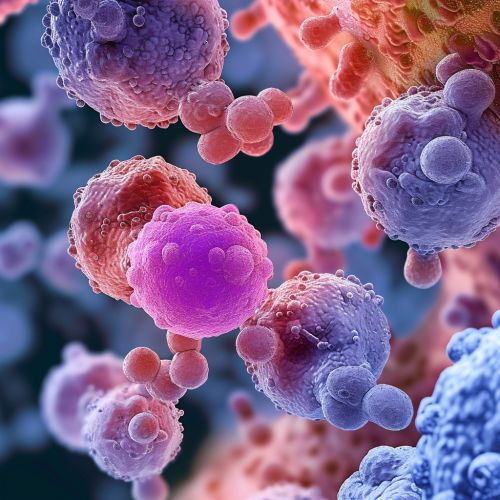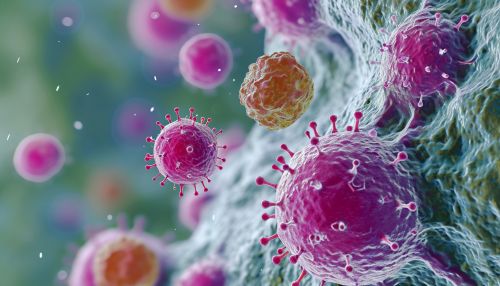Cytokine
Overview
Cytokines are a broad and loose category of small proteins that are important in cell signaling. They are released by cells and affect the behavior of other cells, and sometimes the releasing cell itself. Cytokines include chemokines, interferons, interleukins, lymphokines, tumor necrosis factors and others. They are produced by a broad range of cells, including immune cells like macrophages, B cells, T cells and mast cells, as well as endothelial cells, fibroblasts, and various stromal cells.


Classification
Cytokines have been classified into different families based on their function, cell of origin, target of action, and structure. They are broadly divided into protein families such as Interleukin, Interferon, Tumor Necrosis Factor, and Chemokine families. Each family has its unique set of functions and mechanisms of action.
Function
Cytokines are involved in many aspects of inflammation and immunity. They regulate the maturation, growth, and responsiveness of particular cell populations. They can be pro-inflammatory or anti-inflammatory depending on their function. They can also act in an autocrine, paracrine, or endocrine manner.
Production and Release
Cytokines are produced by a broad range of cells, including immune cells like macrophages, B cells, T cells, and mast cells, as well as endothelial cells, fibroblasts, and various stromal cells. The production and release of cytokines can be triggered by various stimuli, including pathogens, antigens, and other cytokines.
Cytokine Receptors
Cytokines exert their effects through binding to specific receptors on the surface of cells. These receptors can be grouped into several families based on their structural characteristics. The binding of cytokines to their receptors triggers a series of intracellular events that lead to the desired response.
Role in Disease
Cytokines play a crucial role in the pathogenesis of many diseases, including autoimmune diseases, cancer, and infectious diseases. They can also be involved in the pathogenesis of cytokine storms, a severe immune reaction in which the body releases too many cytokines into the blood too quickly.
Therapeutic Use
Due to their role in the immune response, cytokines have been used therapeutically in the treatment of various diseases. For example, interferons are used in the treatment of certain cancers and viral infections, while interleukin-2 is used in the treatment of renal cell carcinoma and melanoma.
